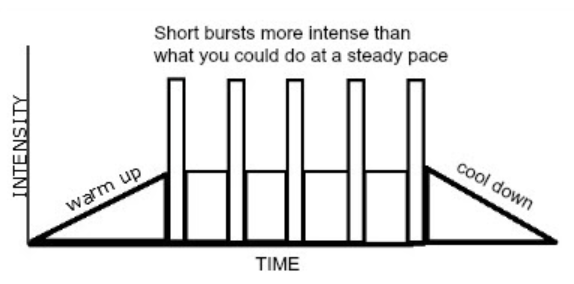Why Am I Not Making Progress?
You work out. You try to eat better. You get your steps in. But nothing is changing.
No big shift on the scale. No big difference in the mirror. Strength feels stuck.
If that sounds familiar, you are not broken or doomed. But something in your system needs to change.
At bStrong, when someone asks, “Why am I not making progress?”, we usually look at four things:
The kind of training you are doing
How you’re progressing that training
Your nutrition
Your recovery, sleep, and overall stress
This article will help you do the same check on yourself.
If you want a deeper dive on habits, also see The Consistency System: 3 Habits To Make Strength Training Stick.
Step 1: Look At Your Main Type Of Exercise
What is your primary mode of exercise right now?
Mostly steady state cardio
Mostly random high-intensity classes
Mostly strength training
A little of everything, but no real plan
Cardio Is Not Bad - It Just Has Limits
Cardio has benefits for heart health, stamina, and stress. The problem is when it is:
The only thing you do
Always the same pace, distance, or class
Your body adapts. You get some progress early on, then the same routine stops moving the needle as much.
If you are doing:
The same 30 to 40 minute jog most days
The same spin class 3 to 4 times per week
You may be in “maintenance mode” without meaning to.
Where Strength Training Fits In
If you want your body to look and feel different, you almost always need strength training in the mix.
Benefits:
Helps you keep or build muscle
Supports a healthier metabolism
Improves how you feel and move in daily life
At bStrong, that usually looks like:
Strength training 2 to 3 times per week in a coached small group
Full body sessions that progress over time
Some extra walking or light activity outside the gym
If your current routine is cardio only, or mostly random workouts, that is a big reason progress may be stalled.
Step 2: Check If You Are Actually Progressing Your Workouts
Even if you are doing the right kind of training, you can still get stuck if you are not progressing.
Ask yourself:
Am I tracking anything?
Do I know what I lifted last month on my main exercises?
Do I push slightly harder at times, or is every workout the same?
Small, planned changes over time are what drive progress.
How To Progress Cardio
If you like cardio and want to keep it in, you can change the intensity instead of doing the same thing every time.
Example interval workout:
10 to 20 seconds of very hard effort (almost all out)
2 to 3 minutes of easy recovery
Repeat 4 to 6 times
That is only 60 to 120 seconds of actual hard work, but it is a lot more intense than a steady 40 minute jog.
You do not need to go all out every workout, but you should have:
Some days that are clearly harder
Some days that are easier
A reason behind your choices, not just habit
How To Progress Strength Training
With strength training, you want slow, steady progress in one or more of:
Weight on the bar or dumbbells
Reps at the same weight
Control and quality of the movement
Simple rules:
Track your main lifts
Aim to be a little stronger this month than last month
Do not max out every session - think long term
If you never write anything down and just “do a workout,” you are guessing. A lot of people feel stuck simply because they have no way to see progress.
Step 3: Be Honest About Your Nutrition
You cannot out train consistently poor eating.
Nutrition does not have to be perfect, but if you are:
Under eating during the week, then overeating on weekends
Getting most of your calories from ultra processed foods
Skipping protein often
Regularly drinking more alcohol than you admit
…it will absolutely slow or block progress.
Start With Foundations
Before worrying about detailed macros, focus on:
Protein
Have a meaningful protein source at each meal
Quality
More whole foods, fewer ultra processed foods
Structure
Eat regular meals instead of barely eating all day then snacking at night
Good first moves:
Add protein to breakfast and lunch
Swap one processed snack for fruit, yogurt, or nuts
Have at least one meal per day that looks like:
Protein + a carb you like + some vegetables
For a deeper walkthrough, see All About Nutrition: The Basics and All About Fat Loss: A Simple Guide For Real-Life Results.
Check Your Weekend And Evening Patterns
A very common pattern:
“Perfect” Monday through Thursday
Overshooting calories Friday through Sunday
Extra snacking and drinks at night
If that sounds familiar, you probably do not have a workout problem. You have a weekly average problem.
Step 4: Look At Recovery, Sleep, And Stress
Training is stress. So are work, family, traffic, and a packed schedule.
Your body does not separate them. It just sees total load.
If you keep piling on stress without enough recovery, you will see:
Low energy
Poor performance
Slower results
Higher risk of nagging injuries
Sleep Check
Ask yourself:
How many hours of sleep am I actually getting most nights?
Do I go to bed and wake up at roughly the same times?
Do I scroll in bed or fall asleep quickly?
Simple targets:
Aim for 7 to 9 hours most nights
Protect a consistent wind down routine
Avoid trading an extra hour of sleep every day just to squeeze in more punishing workouts
If your plan is “sleep less so I can train more,” that will catch up to you.
We go deeper on this in Why Sleep Is Your Superpower and 7 Proven Strategies To Improve Your Sleep Quality.
Stress And Overall Load
If life is especially stressful:
Big work projects
Family changes
Moving, travel, or major life events
It might not be the right season to crush yourself with super high volume training.
Instead, your plan might need to shift to:
2 to 3 solid strength sessions per week
More walking and light movement
Extra focus on sleep and food quality
Often, progress restarts when your training load and life load are actually matched.
Step 5: Check Your Expectations And Timeline
Sometimes you are making progress, but your expectations are off.
Reality checks:
Strength and muscle gain take months and years, not days
Safe, sustainable fat loss is slower than most “challenges” promise
Feeling better in your joints, sleep, and energy often shows up before big visual changes
Questions to ask:
Have I been consistent for at least 8 to 12 weeks?
Have I kept my training, nutrition, and sleep in a reasonable groove during that time?
Or have I been start and stop, on and off, all or nothing?
If you have only been “on it” for two or three weeks, you may not be stuck. You may just need more time.
Putting It Together: A Simple Progress Checklist
Use this as a quick self-check:
Training
Am I strength training 2 to 3 times per week?
Do I have some structure, not just random workouts?
Am I tracking my main lifts or key cardio metrics?
Intensity And Progress
Have I changed anything in the last 4 to 8 weeks?
Am I lifting slightly more, or with better form, than I was a month ago?
Do I have easier and harder days, or is everything the same?
Nutrition
Am I getting protein at most meals?
Do I have at least one “grown up” meal most days that includes protein, carbs, and veggies?
Are weekends and evenings somewhat aligned with my goals, or the total opposite?
Recovery
Am I sleeping at least 7 hours most nights?
Am I managing stress at all, or just absorbing it?
Do my workouts leave me feeling better and more capable, or constantly wiped out?
If several of those answers are “no” or “not really,” that is your starting point.
What This Looks Like At bStrong
When someone at bStrong says they are not making progress, we do not just shout “work harder.”
We usually:
Look at their training week
Are they truly getting in 2 to 3 strength sessions most weeks?
Are we progressing their program or keeping them in the same safe comfort zone forever?
Talk briefly about their nutrition
Any protein at breakfast and lunch?
Are weekends completely off the rails?
Ask about sleep and stress
New baby? Busy season at work? Travel?
Do we need to pull volume down and focus on quality work and recovery?
Then we adjust:
Their plan in the gym
Their focus outside the gym
Their expectations on timeline
The goal is not to train harder no matter what. It is to train smarter based on real life.
How To Use This Article
If you feel stuck, pick one or two of these and work on them for the next 4 to 8 weeks:
Add or tighten up strength training 2 to 3 times per week
Track your main lifts so you can actually see progress
Add protein to one or two meals per day
Clean up weekend eating just a little
Protect your bedtime and wind down routine
Once those feel normal, then layer in the next thing.
Ready For Help Figuring This Out?
If you have been working hard but not seeing the progress you want, you probably do not need more random effort. You need a clearer plan and some honest feedback.
At bStrong, we combine:
Coached small group strength training 2 to 3 times per week
Structured programming that actually progresses
Simple, realistic guidance on nutrition, sleep, and habits
If you are in or near Bellevue, Redmond, or Kirkland and want help breaking through a plateau, our 3 week Trial is a great first step.





